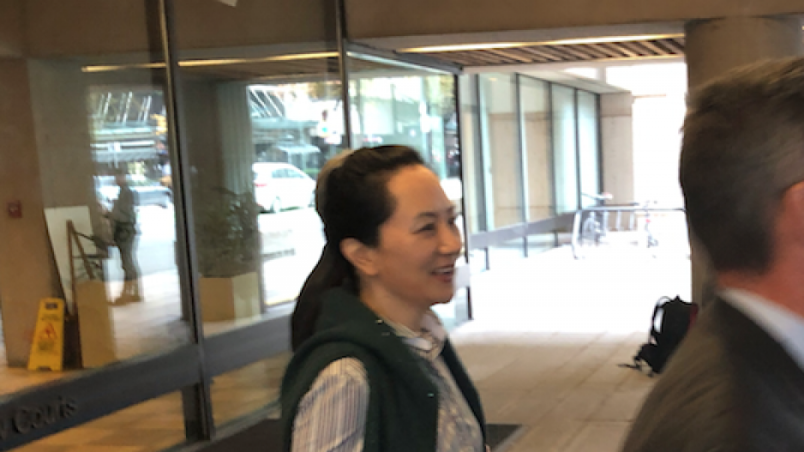The extradition case of Huawei Technologies Co. Ltd. CFO Meng Wanzhou, slated to resume on Jan. 20 in a Â鶹´«Ã½Ó³»courtroom, may be resolved much quicker than the originally anticipated multi-year timeline, one legal observer says.
Thatâs because arguments presented by Mengâs defence, while expected by some to be centred around the issue of double criminality, or whether Mengâs alleged U.S. offences also constitute crimes in Canada, may break down to a simple question about the original arrest warrant issued by Canadian courts at the behest of the U.S. Department of Justice.
Kurland, Tobe Immigration Law Firm lawyer Richard Kurland said the case could come down to the fact that the courts issued a provisional warrant for the immediate arrest of Meng when she arrived from Hong Kong at Â鶹´«Ã½Ó³»International Airport on a Cathay Pacific flight on December 1, 2018.Â
Mengâs defence argued that the executive was held at the airport for three hours and was compelled to turn over her electronic devices and passwords prior to being notified she was being arrested. Crown prosecutors have argued that the detention was part of a normal border screening process by the Canada Border Services Agency (CBSA) which had to determine if Meng could enter Canada before the RCMP had jurisdiction to make the arrest.
âLast year, the court heard the arrest was to take place aboard the aircraft, and then the court heard the arrest was to take place on the tarmac⦠And then there was the equivalent of the 18-minute Rose Mary Woods gap in the Nixon tape,â Kurland said, referring to former U.S. president Richard Nixonâs controversial White House audio tapes that eventually led to his resignation. âWhat happened on that tarmac?â Kurland asked.
Kurland said the Crown will now have to defend the rationale for making the arrest at the airport three hours after Mengâs arrival rather than on the plane or on the tarmac. He added that the argument that the CBSA had jurisdiction to conduct a border-entry screening ahead of the RCMP will not be sufficient alone to counter the claims by Mengâs defence team.
âBasically, you are telling the court itâs not immediate,â Kurland said. âLetâs look up the word âimmediateâ in the dictionary; thereâs just no getting around that. Now, if thereâs a failure to engage in immediate arrest, and thereâs no consequence of that failure, then you can overlook it. But if itâs a situation where there is a consequence, that is not going to go well [for the Crown].
âIt makes no difference if itâs the RCMP or the CBSA or whoever. The court ordered immediate arrest; the RCMP and the CBSA both have the authority to arrest. Whoever went first had the obligation by court order to immediately arrest, not to wait three hours.â
If the defence argues that Meng should not have been arrested because the U.S. sanctions sheâs accused of violating do not apply in Canada, that still leaves other alleged offences such as wire fraud and money laundering, which are covered by comparable Canadian laws.
âThe best they can do is to do away with the questions on the Iranian sanctions,â Kurland said. âBut what about everything else? One way to try to umbrella-up the double-criminality point is to say that it tainted everything else, and everything else is a mere subset of double criminality. And thatâs an argument⦠but I suspect itâs going to go a lot cleaner and simpler than most people believe at this point, because of what happened on the tarmac.â
The Meng arrest has torpeÂdoed Ottawaâs relationship with Beijing over the past year, with the Chinese government arresting multiple Canadian citizens on espionage and drug charges since December 2018 and effectively banning imports of Canadaâs red meats and canola into the worldâs second-largest economy. The case is further complicated by Huaweiâs heavy investment in Canadian technology and its push for inclusion in Canadaâs upcoming 5G wireless network.
Read the original article .



